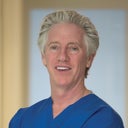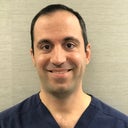Will upper eyelid skin stretch?
I had an aggressive upper bleph and my eye will not close all the way.. Will eyelid skin stretch? If so, how long will it take?
I had an aggressive upper bleph and my eye will not close all the way.. Will eyelid skin stretch? If so, how long will it take?



What’s trending? Who’s turning heads? Which TikTok myths need busting? We’ve got you. No fluff, no gatekeeping—just real talk. Get our free, unfiltered newsletter.